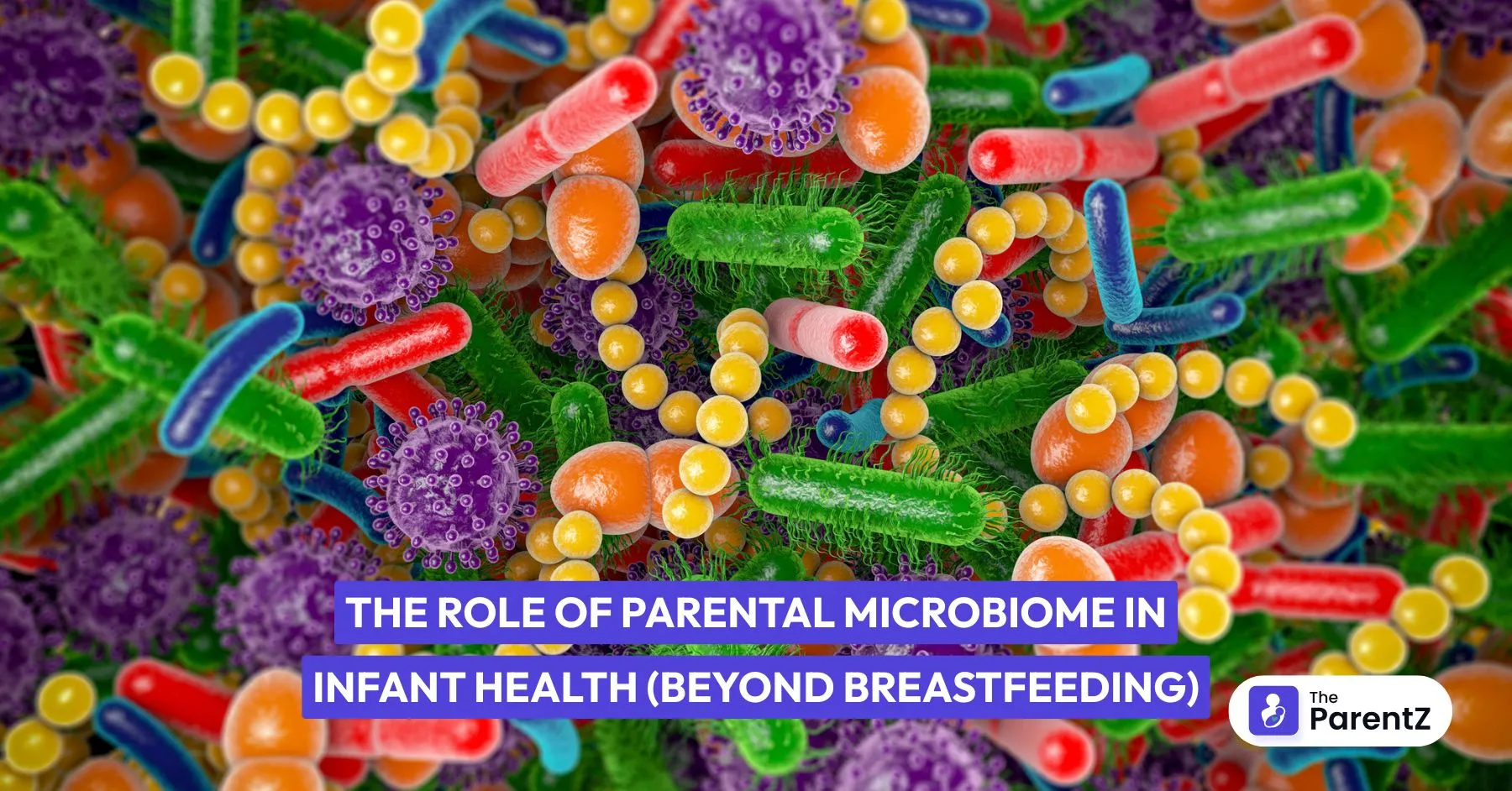You would have often heard how breast milk lays the foundation for a baby’s gut health. But what if we told you that your microbiome—the community of trillions of microbes living in and on your body—starts shaping your baby’s health even before birth, and well beyond breastfeeding?
Yes, it’s not just breast milk. Your skin, saliva, home environment, and even your gut bugs can quietly influence your baby’s immune system, digestion, and long-term health in powerful ways. If you're a parent—or about to become one—understanding the role of your microbiome might just change how you think about family wellness.
Read this article to explore how parental microbiome plays a really crucial aspect in infant health.
What Is the Microbiome?
The microbiome is a bustling metropolis of bacteria, fungi, viruses, and other microorganisms that live in your gut, mouth, skin, and beyond. For parents, this isn’t just personal. Your microbiome is the first ecosystem your baby encounters.
Infants are born with a nearly blank microbial slate, and in the first few months, their bodies begin collecting the microbial “seeds” that will define their gut health, immunity, and possibly their risk for allergies, asthma, and obesity.
How Your Microbiome Affects Infant Health?
Even if you’re not breastfeeding or past the breastfeeding stage, your microbiome still has a voice in your baby’s well-being. Here's how it really impacts.
1. Immune System Development
Early microbial exposure teaches your baby's immune system what to fight and what to tolerate. A diverse microbiome in parents means your baby is exposed to a variety of microbes—some of which may reduce the risk of autoimmune diseases and allergies.
2. Gut Health and Digestion
Your gut bacteria influence your child’s digestion—through transferred bacteria and through the way you prepare and store food. Introducing a variety of microbes (from natural environments, pets, or even fermented foods) helps build a stronger gut lining in babies.
3. Mood and Brain Development
Surprisingly, gut health is tied to brain development. A parent’s microbiome can influence their mental well-being, which in turn impacts bonding, caregiving, and emotional regulation in infants—key factors in cognitive development.
Not About Being Germ-Free—But About the Right Germs
You live in a culture obsessed with sanitizing everything. But not all bacteria are bad. In fact, an overly sterile environment may reduce beneficial microbial exposure, possibly increasing your baby’s risk for eczema, asthma, and food allergies.
Parents who spend time outdoors, eat fermented foods like yogurt or idli, avoid unnecessary antibiotics, and keep their homes “clean but not sterile” tend to foster more robust microbiomes—for themselves and their kids.
6 Tips to Support a Healthy Microbiome For You and Baby
Small changes go a long way when it comes to supporting a healthy microbiome for you and baby.
- Eat fiber-rich foods like lentils, bananas, oats, and leafy greens. Good microbes love them.
- Include fermented foods in your diet (curd, pickles, dosa batter, kimchi). They introduce beneficial bacteria.
- Limit antibiotic use unless medically necessary. They kill both bad and good bacteria.
- Encourage outdoor play for toddlers and walks in green spaces—even a garden helps.
- Use gentle soaps and avoid harsh antibacterial products at home.
- Get dirty with your kids—literally. Gardening, petting animals, or playing in mud can be good microbial fun.
Conclusion
Whether you breastfeed, bottle-feed, or a mix of both—what truly matters is your baby’s overall microbial environment, and you play a starring role in that. While breastfeeding is an amazing start, it’s just one chapter in the microbial story. And you’re quietly, microbially, shaping their future health.






Be the first one to comment on this story.